Plea for more food donations as demand soars
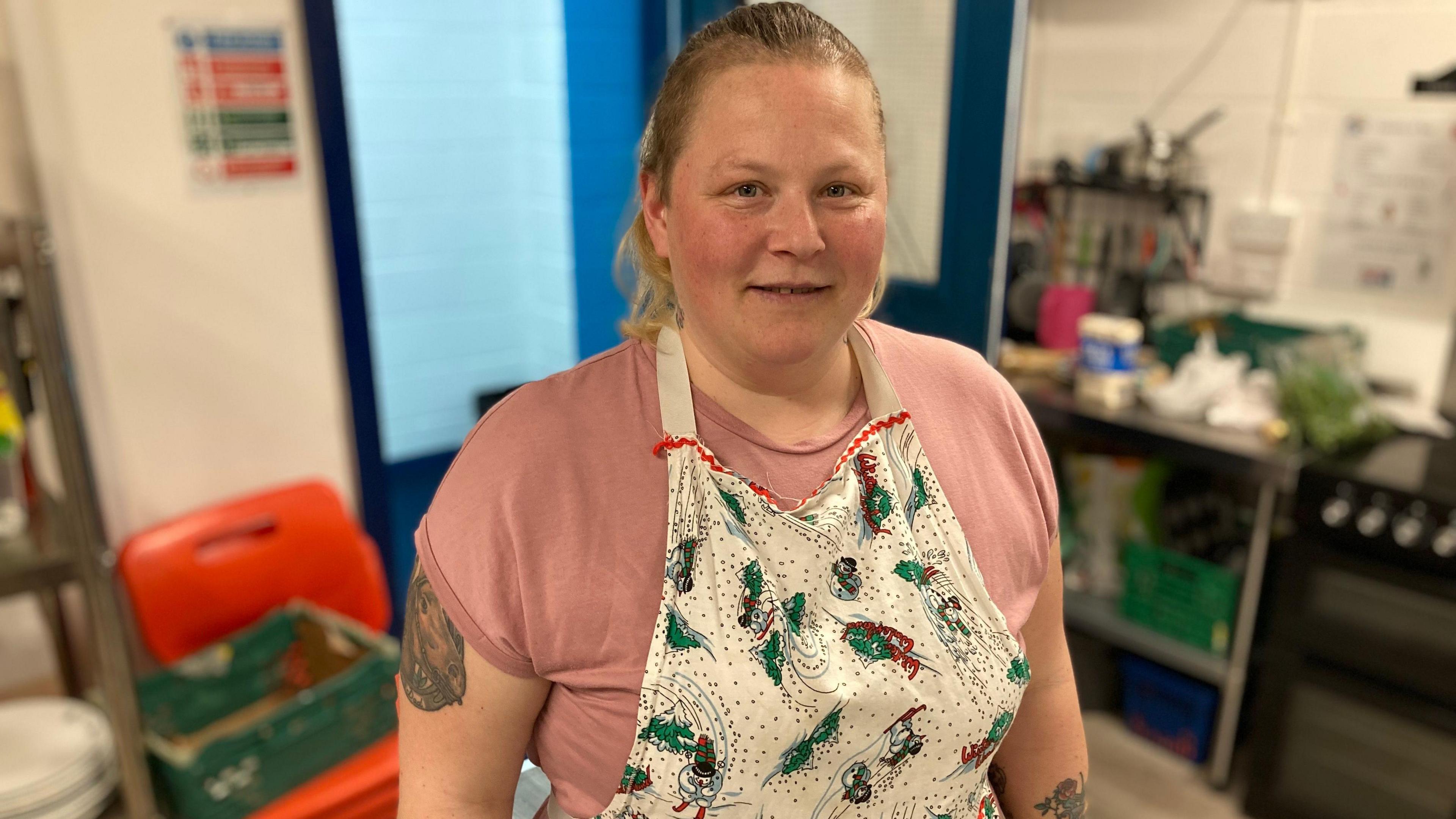
"It gets me out of the house which helps a lot and I like the cooking," says Kelly Goddard, who helps at a weekly warm hub
- Published
A scheme that redistributes food which shops and factories would otherwise throw away has said it is struggling to keep up with demand.
FareShare Cymru said it needed an extra 60 tonnes of food to be donated a month.
It has a waiting list of 176 organisations wanting access to the leftover food, including homeless hostels, community groups and school clubs.
The charity said demand had risen due to the cost of living crisis.
M&S scraps milk use-by dates to cut waste
- Published7 June 2023
Wales remains top UK recycler for over 10 years
- Published11 May 2022
Three-week or monthly bin days loom for most areas
- Published16 February 2024
In 2023, the scheme delivered more than 900 tonnes of food to 239 groups across Wales.
They included Foothold Cymru in Llanelli, a community pantry offering 10 items for £5 and cookery classes using donated food.
"I suffer with anxiety and depression so my friend invited me to come here," explained Kelly Goddard, a mother-of-three who was preparing soup to be handed out during a weekly warm hub for local residents.
During a slow-cooker session, the 38-year-old said she had been shown how to make a "stunning" banana bread with just three ingredients.
"Before (we'd have a lot of) ready meals with the children but now it's all home-made in the house and I love it."
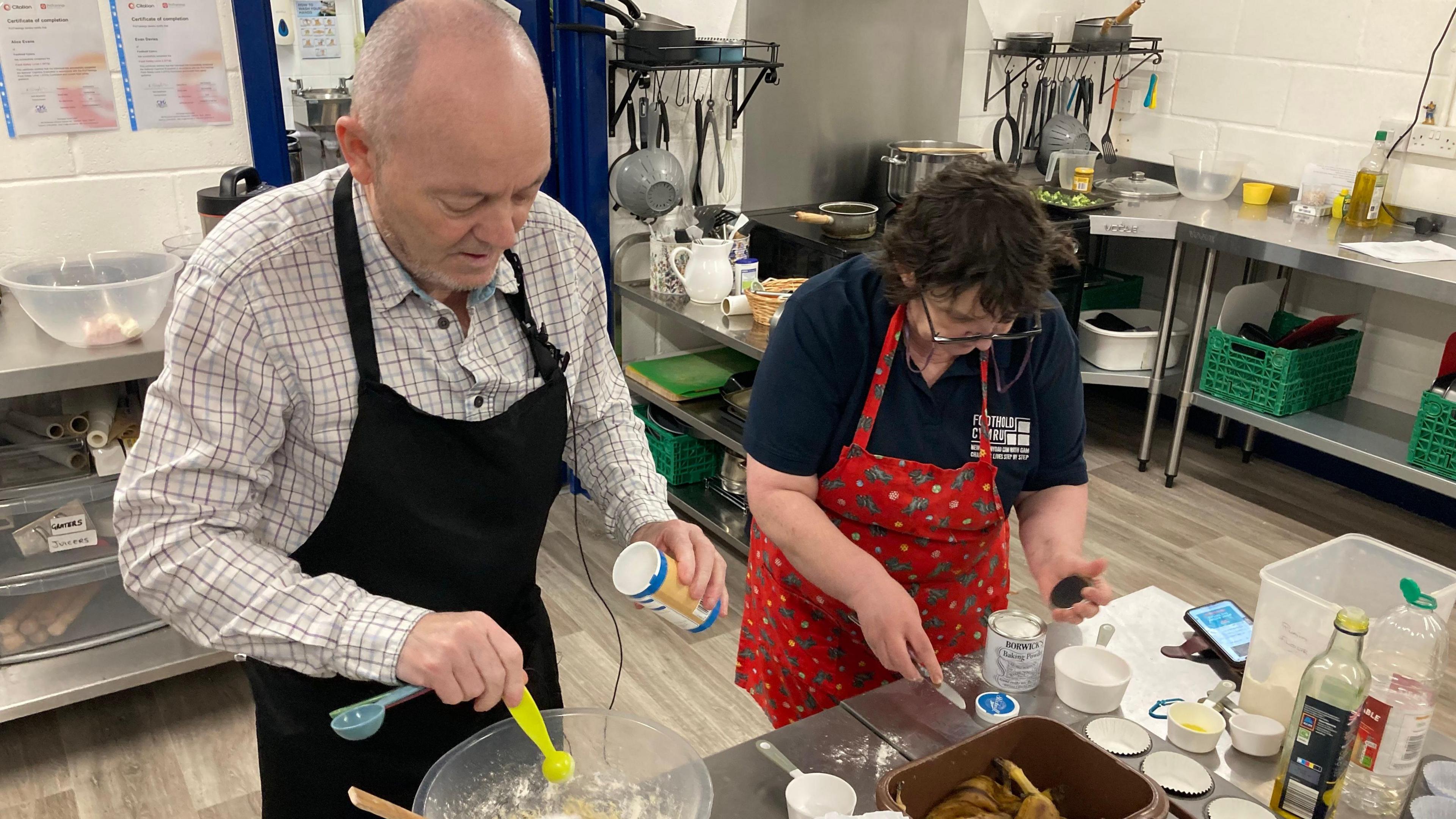
Learning how to bake banana muffins was one of the lessons at Foothold Cymru
Eifion Wyn Simms, 65, was using a batch of over-ripe bananas to make muffins.
"They might have ended up in landfill - but they're still OK to eat," he said.
The retired naval veteran said volunteering at the classes was "good for my mental health", helping him feel "part of the family".
Foothold Cymru's operations manager Sophie Morgan said demand had increased "massively" in recent months.
"We're seeing people now that wouldn't probably have come in (in the past) - including people who are working - there's a lot of in-work poverty at the moment," she said.
"Without the donated food that we get from FareShare we wouldn't be able to do what we do - we don't have the money to go out and buy food to help the community."
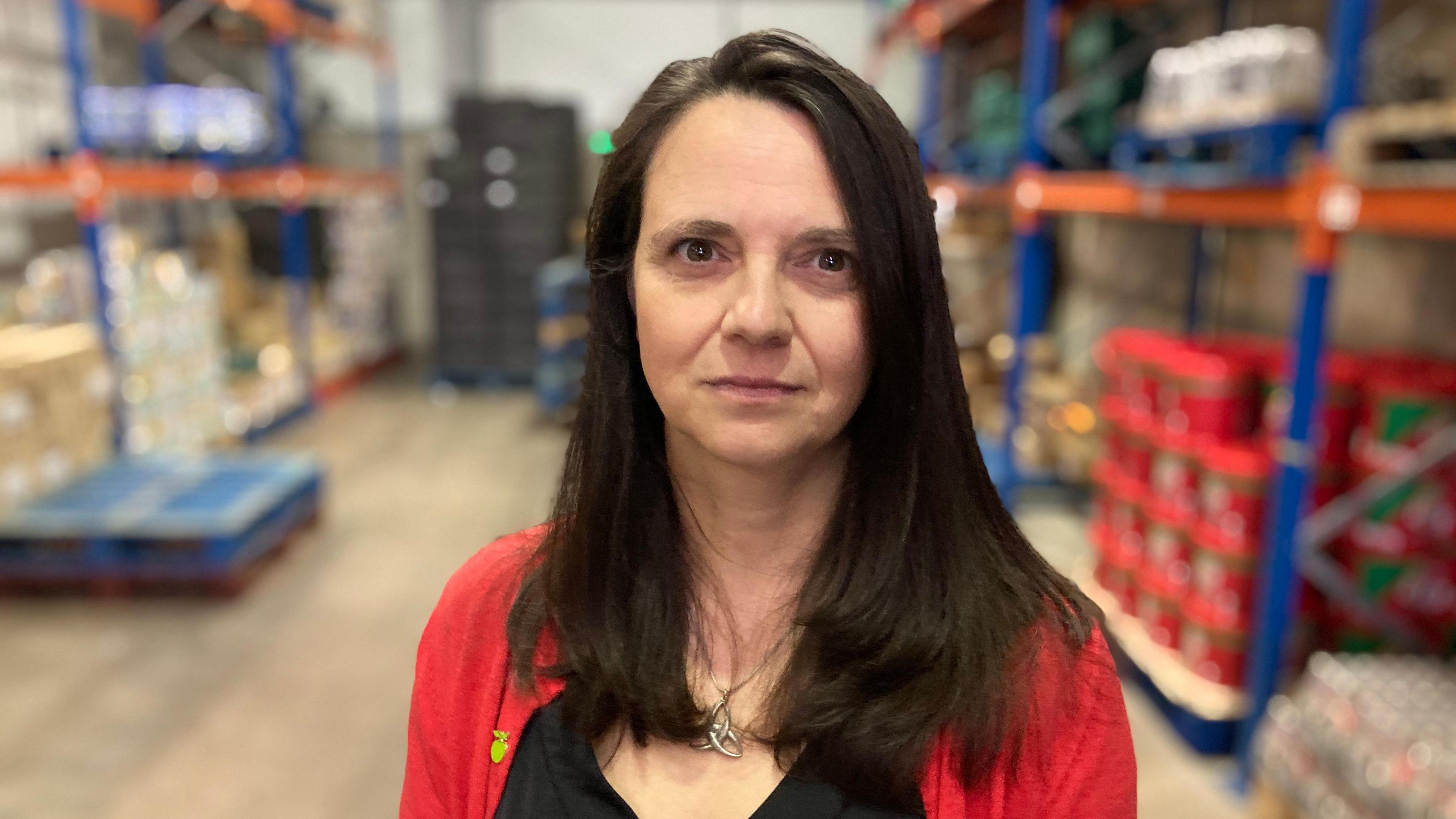
Sarah Germain of FareShare says the charity need "considerably more food"
At FareShare's Cardiff warehouse, chief executive Sarah Germain said the charity believed it was only "scratching the surface in terms of the surplus food that is out there".
Of an estimated 400,000 tonnes of food wasted in Wales each year, if 1% was edible it would be enough to provide 9 million meals, she said.
"There is so much demand out there at the moment and we need more food," she said.
She appealed to manufacturers, wholesalers and even individual farmers to get in touch, adding that Welsh government funding via the Surplus with Purpose Cymru fund, external could help with any costs.
The Welsh government has set a target for a 60% reduction in avoidable food waste by 2030 on the way to Wales becoming a "zero waste nation" by 2050.
As well as costing businesses money, food waste is a major environmental problem and contributor to climate change.
"(Think of all) the effort that goes into producing food - the emissions, the water, the energy, people's time - it should really be eaten if it can be," Ms Germain explained.
"We're in a climate crisis at the moment and around two tonnes of CO2 equivalent is saved for every tonne of food we redistribute."
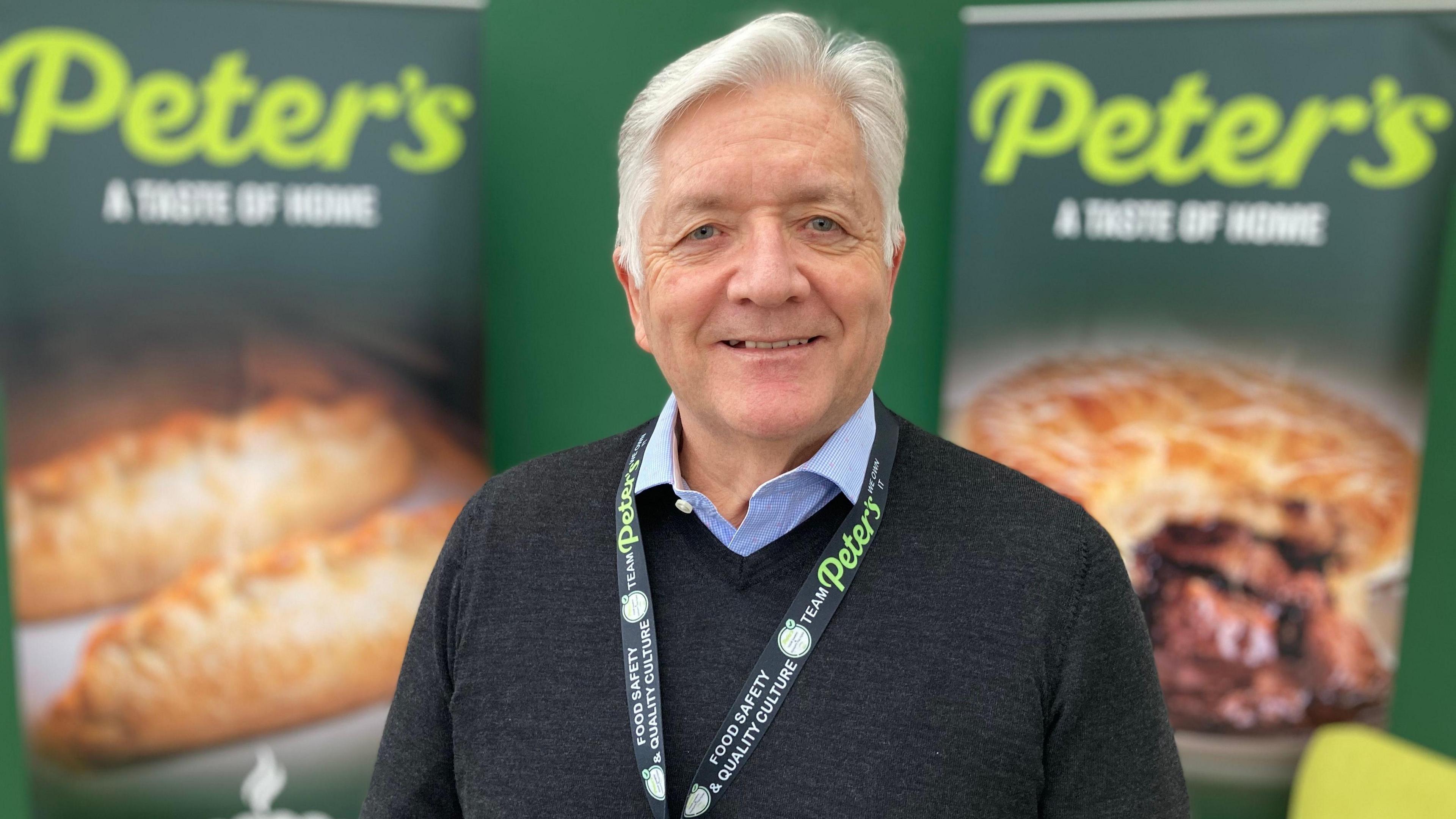
Mike Grimwood of Peter's Food says donating is easy and gives a "big morale boost" for staff
Peter's Food, based in Bedwas, Caerphilly, donates any pies and pastries it classes as "B-grade" to the scheme.
Managing director Mike Grimwood said that rather than try to get a small price for the produce, it decided to "do something that helps people".
"I was shocked to see what proportion of the Welsh population lives in poverty," he said.
Since the company joined the scheme in April 2023, FareShare Cymru said it had provided enough food for about 29,000 meals.
Across Wales, food donated via the scheme is reaching up to 30,000 people, Ms Germain added.
"From fresh fruit and vegetables, frozen food to ready meals - as long as it's edible and good food we can take it," she said.
"This is about turning an environmental problem into a social good."
Related topics
Related Topics
- Published26 April 2023
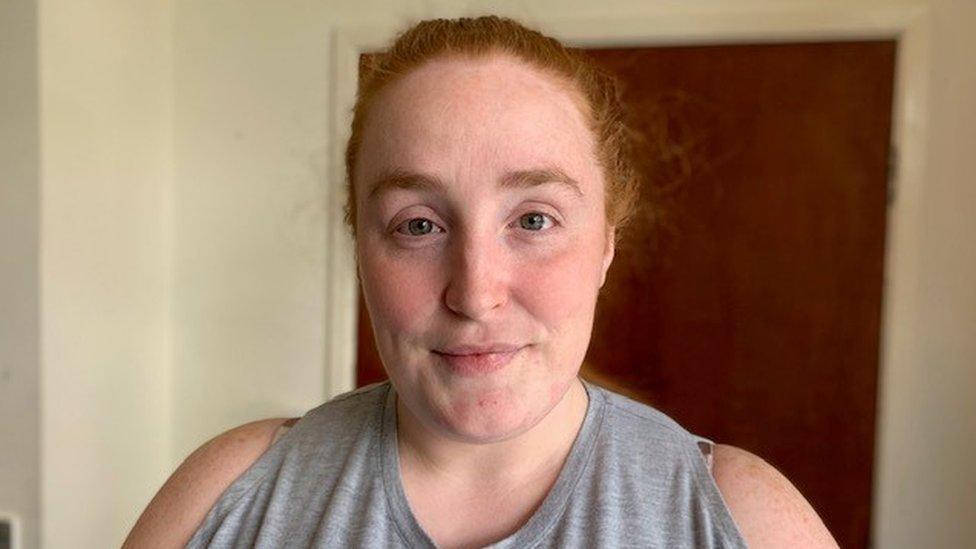
- Published23 March 2023
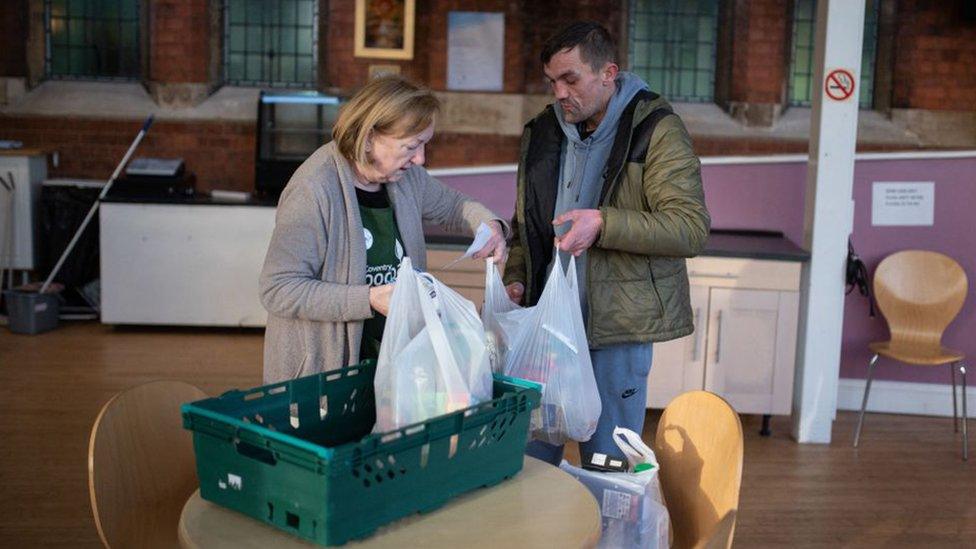
- Published16 November 2023
